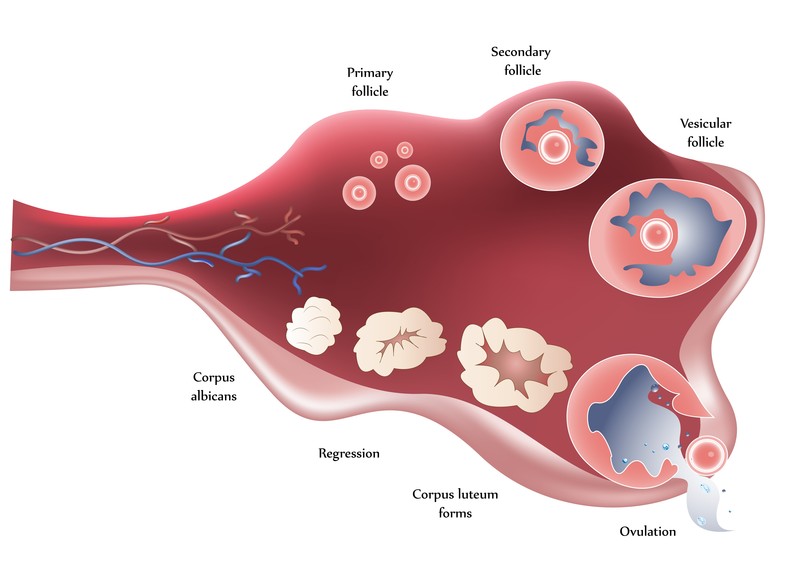
What is a short follicular phase?
The follicular phase is the first half of the cycle, from day one of your period to ovulation. A healthy follicular phase would be 13-15 days. While the majority of fertility patients I see have problems with luteal phase defects, many women also have a short follicular phase.
Is a short follicular phase a problem?
Yes, it absolutely can be. The egg needs at least 13 days to mature properly.
Why is a short follicular phase a problem?
An ideal menstrual cycle takes approximately 14 days for an egg to mature fully before ovulation occurs. This first half of the cycle is known as the follicular phase. During this time, your body prepares for ovulation by developing a healthy, viable egg and building up the uterine lining in preparation for possible implantation. When the follicular phase is too short – less than 12 days – it can mean the egg hasn’t had sufficient time to mature properly. This can make an egg less likely to be fertilized or less capable of developing into a healthy embryo.
A shortened follicular phase may also impact the quality of cervical mucus and the thickness of the uterine lining, both of which are critical for conception. Even if ovulation occurs, these factors can reduce the chances of successful fertilization and implantation. For optimal fertility, the body must have enough time to go through all the necessary steps in the correct sequence, starting with adequate egg development. Supporting and correcting the follicular phase length can significantly improve the chances of conceiving naturally.
Why would I have a short follicular phase?
Here are some possibilities as to why your eggs are getting released too quickly:
High levels of estrogen. It is estrogen’s job to mature the egg in preparation for release. If there is excessive estrogen, the egg matures too quickly. Why would there be too much estrogen? Three other possible reasons: a) Insulin provokes an increase in estrogen level and/or activity, b) it is the responsibility of your liver to break down estrogen when it’s excessive or throughout your menstrual cycle when estrogen levels are supposed to drop (after ovulation and before your period). If your liver isn’t processing estrogen well, it can accumulate, and c) there is an accumulation of xenoestrogen (chemicals/pollutants like BPA that can act like estrogen).
The solution to these options is a) reduce insulin-provoking foods in your diet, b) and c) enhance liver detoxification.
Your brakes aren’t working. The brakes that slow down egg maturation are your androgens (male-type hormones). DHEAs and testosterone act as moderators that don’t allow estrogen to get the egg ready too quickly before it has had time to mature fully. Where do these brakes come from? Most of your DHEAs is produced by your adrenal glands (your stress glands). A significant amount of your testosterone also comes from your adrenal glands. Keeping your adrenals healthy and running is vital to healthy hormone balance and fertility. To function well, adrenal glands need vitamins C, B5, B6, Magnesium and Zinc. Stress can deplete these vitamins and minerals, compromising your adrenal glands’ function.
High stress
Ongoing stress can affect your brain’s communication with your ovaries, throwing off hormone signals. This can lead to early or irregular ovulation, reducing the chances of a healthy egg being released.
Perimenopause or low ovarian reserve
As women approach their late 30s and 40s or if they have low ovarian reserve at any age, the body might speed up ovulation. This is the body’s way of trying to use fewer remaining eggs, but it can result in a short follicular phase and lower egg quality.
Thyroid issues
An underactive or overactive thyroid can interfere with the hormones that regulate your cycle. Even mild thyroid dysfunction can cause irregular or shortened follicular phases.
Over-exercising or under-eating
If your body isn’t getting enough calories or is under too much physical stress, your brain may change how it signals your ovaries, affecting the timing of ovulation.
Short Follicular Phase Implications for Fertility
If the follicular phase is too short, the egg might not be fully mature when it’s released, which reduces the chance of it being fertilized. Also, your uterine lining may not be thick enough yet to support implantation of a fertilized egg. These factors combined can make it more difficult to conceive or maintain a healthy pregnancy.
Working with a naturopathic doctor can help uncover the underlying causes of a short follicular phase and support hormone balance through nutrition, supplements, herbal medicine, and lifestyle changes.
Short Follicular Phase Research
Check JH, Adelson H, Lurie D, Jamison T. Effect of the short follicular phase on subsequent conception. Gynecol Obstet Invest. 1992;34(3):180-3. doi: 10.1159/000292755. PMID: 1427421.